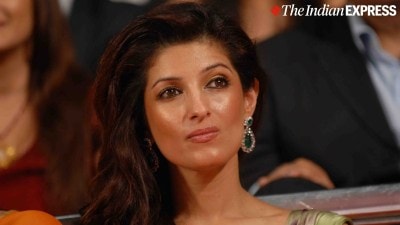UMPIRE strikes back
Those watching the Test series in the Caribbean would have seen the howlers from umpire Asoka de Silva, which on at least one occasion raise...

Those watching the Test series in the Caribbean would have seen the howlers from umpire Asoka de Silva, which on at least one occasion raised the ire of the usually phlegmatic Michael Holding. Others with a more prodigious memory would recall similar decisions by Russell Tiffin, Dave Orchard and Darrell Harper that have almost ruined otherwise keen contests.
One would expect, given this, that the International Cricket Council, when drawing up its roster of top umpires for the year ahead, would have seen fit to send some of the habitual offenders to the B-list and give others a chance.
Not quite. While the ICC has inducted some fresh blood into its Emirates Elite Panel, it has retained old sinners so that the panel now is a full XI. To the eight umpires chosen in 2002 8212; Messrs Bucknor, Shepherd, Venkataraghavan, Koertzen, Orchard, Harper, De Silva and Tiffin 8212; were added Hair, Taufel and Bowden. Their explanation is a heavy workload that was taking its toll on the existing strength yet it is curious that those guilty of committing glaring mistakes were retained. Some examples:
In the just-concluded Australia-Windies Test at Port of Spain, De Silva gave Justin Langer out leg before in both innings to deliveries that pitched far outside the leg stump. In the second case, the appeal wasn8217;t even serious till bowler Vasbert Drakes forced the issue.
In the 2003 Sydney Test against England, Langer8217;s opening partner Matthew Hayden was given out LBW to a nowhere delivery by Orchard, prompting the man they call 8216;Hulk8217; to smash the glass door on his return to the dressing room
Tiffin was the other umpire on the occasion, and earned wry smiles from Aussie bowlers when he refused to give England number 11 Steve Harmison out to a succession of caught behinds and leg befores
In the first Test of the 2001-2 Windies-India series, Harper had given Brian Lara caught behind to a delivery that went off Lara8217;s thigh on the off side, and in the second Test, a similar decision went against Sachin Tendulkar. Both batsmen were on zero at the time.
Announcing the expanded panel, ICC chief Malcolm Speed had said it 8216;8216;represents the best decision-makers in the game. Their skills will help improve the overall standard of umpiring at international level and set an example for the next generation.8217;8217;
|
Umpires are selected by a pretty lengthy process. It began with an assessment by captains of the Test-playing nations between 1998 and 2001, which helped reduce the number from the existing panel of 20 ICC umpires. The final selection of the panel was made jointly by Speed and Sunil Gavaskar, chairman of the ICC8217;s Cricket Committee Playing.
And yet it doesn8217;t seem to be quite working. Both Orchard and Tiffin were dropped from the 2003 World Cup Super Six stage due to non-performance. The final line-up for the Super Sixes included six non-EEP names: Bowden, Hair, Taufel, Aleem Dar, Brian Jerling and Peter Willey. Willey has himself opted out of an EEP appointment, but if Dar and Jerling were deemed better than Tiffin and Orchard, why not give them a more permanent leg up?
The ICC rules, incidentally, provide for names to be dropped from the panel.
Dave Richardson, ICC8217;s general manager cricket, says Tiffin and Orchard 8216;8216;missed out on some part of the World Cup not because they are necessarily bad umpires but simply because they might not have been in the best of form.8217;8217; He acknowledges, though, that 8216;8216;mistakes were made8217;8217;.
Former Indian Test umpire Ram Babu Gupta agrees that there have been a lot of mistakes of late by the men in the middle. 8216;8216;International cricket brings a lot of pressure with it. If you are a good umpire, you won8217;t be pressured. Conversely, if you are pressured, you are not a good umpire, and shouldn8217;t be in the EEP.8217;8217;
Former international umpire SK Bansal puts a different spin on things. There are lobbies at work, he says darkly. 8216;8216;Right now we have three Australian umpires Harper, Hair, Taufel in the eleven. Madugalle is the chief match referee; maybe that is why De Silva is being persisted with. Who knows!8217;8217;
Perhaps he has a point. Hair, Taufel and Bowden the last from New Zealand were inducted into the XI after good performances at various international tournaments. It8217;s an opportunity largely denied to India8217;s Arani Jayaprakash and K Hariharan 8212; the latter has had hardly any matches. The ICC claims there8217;s been no foul play and that its just 8216;8216;something that happened because international appointments are made with the host country in mind8217;8217; but one can8217;t help but stare at the fact that four of the EEP panel are from Australia and New Zealand, which also happens to be the home countries of the ICC8217;s top two officials.
Howzzat?
- 01
- 02
- 03
- 04
- 05































